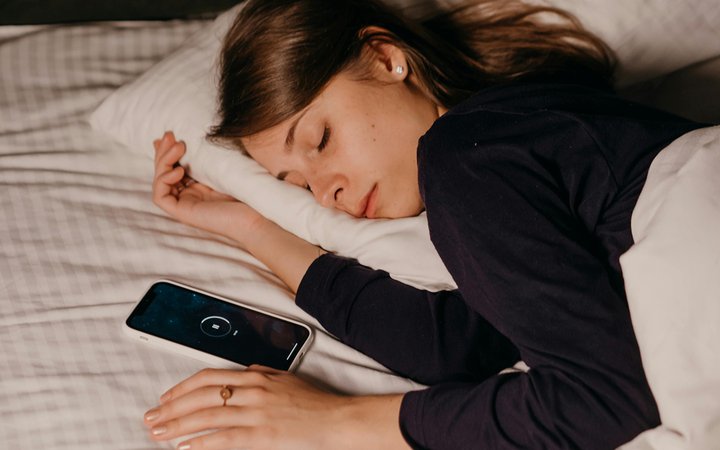Why We Spend More When We're Tired

After a busy day at the office and a long commute home, fatigue sets in and we’re left seeking comfort and convenience.
As we settle on our couches or sit down at our computers, the thought of shopping—even without a specific desire or need—might seem like the only way to feel happy.
Maybe it’s the allure of waiting for something new and exciting to arrive in the post, or the soothing familiarity of scrolling through products we love.
Whatever the reason, tiredness and our mood can sometimes spur impulsive shopping sprees that leave our virtual carts overflowing and our bank accounts empty.
Let’s find out why exactly this happens...
The science behind “tired shopping”

You and I aren’t the only ones who fall victim to this habit, so you’re probably curious why the human brain leads us (and many others) to make these irrational decisions.
A study from 2016 focusing on the effects of fatigue on economic decisions showed that there was a neurological link between tiredness and impaired decision making—even when we buy things.
Behavioral data showed that choice impulsivity increased in a group of participants who performed hard versions of executive tasks but not in control groups who performed easier tasks or enjoyed some leisure time.
In short, the countless little decisions we make during the day lead us to what scientists call “decision fatigue.”
People’s brains become tired of all the choices made during the day, causing them to think irrationally when deciding what to buy late at night.
Social media and your shopping habits

There’s no denying tiredness alone can negatively affect our shopping habits, but social media has its own set of impacts on the way we spend our money.
We spend large chunks of time during the day using our phones, and most of this time goes to social media.
“Adults in the US spend an average of 2-4 hours per day tapping, typing, and swiping on their devices.”
Big platforms like Facebook, Instagram and TikTok expose users to a constant barrage of advertisements, each triggering a powerful dopamine release.
If you factor in how social media often gets used as an after-work “detox,” it’s easy to see how it can lead to impulse buying.
Users will feel compelled to purchase the items offered by big tech’s targeted advertising algorithms.
The myth of “deserving rewards” after work

When we’re tired, it’s easy to fall into the trap of believing we deserve some kind of indulgence. Whether that means leaving the dishes, ordering takeout, or making an impulse purchase is up to our mood.
This mindset can stem from a combination of factors, including our natural inclination towards instant gratification and the perceived need for a quick pick-me-up.
We’ve already outlined how research shows that fatigue can impair our decision-making abilities. For this reason, it would be healthier to recognize that feeling tired doesn’t mean we need to indulge in unnecessary spending.
Recognizing the signs of tired shopping and how to fix it

So now we know what spurs us to make these kinds of purchases, but how do we go about recognizing them and preventing ourselves from making them?
Well, the easiest and simplest sign is determining whether you need what you’re buying.
Since it’s so easy to get pulled into random purchases, being aware of what’s necessary for your life and what isn’t can be a big help in reducing unnecessary spending.
Ask yourself whether you genuinely need what you’re about to buy. Have you been researching and looking for it for a few weeks or months now, or did you only just find it on TikTok a few seconds ago?
This might sound like too simple of a solution now, but when we’re in the moment and looking at a cute pair of shoes or a t-shirt with our favorite Marvel character on it, it’s easy to forget.
Another simple but effective strategy is to just wait until the morning. A good night of sleep can completely restore our decision-making abilities, and shopping first thing in the morning with a clearer mind can make a world of difference in the kinds of choices we make.
Conclusion
To sum it up for you, our ability to recognize and address the signs of tired shopping is crucial in avoiding unnecessary spending.
By being mindful of our habits and implementing small strategies to make us think twice, we can save money, but we can also ensure more conscious consumption.
Remember, as you continue to explore and adapt your shopping practices, even the smallest changes can lead to positive impacts on your financial well-being.
Happy shopping!
Professional invoices for Shopify stores
Let Sufio automatically create and send beautiful invoices for every order in your store.
Install Sufio - Automatic Invoices from the Shopify App Store